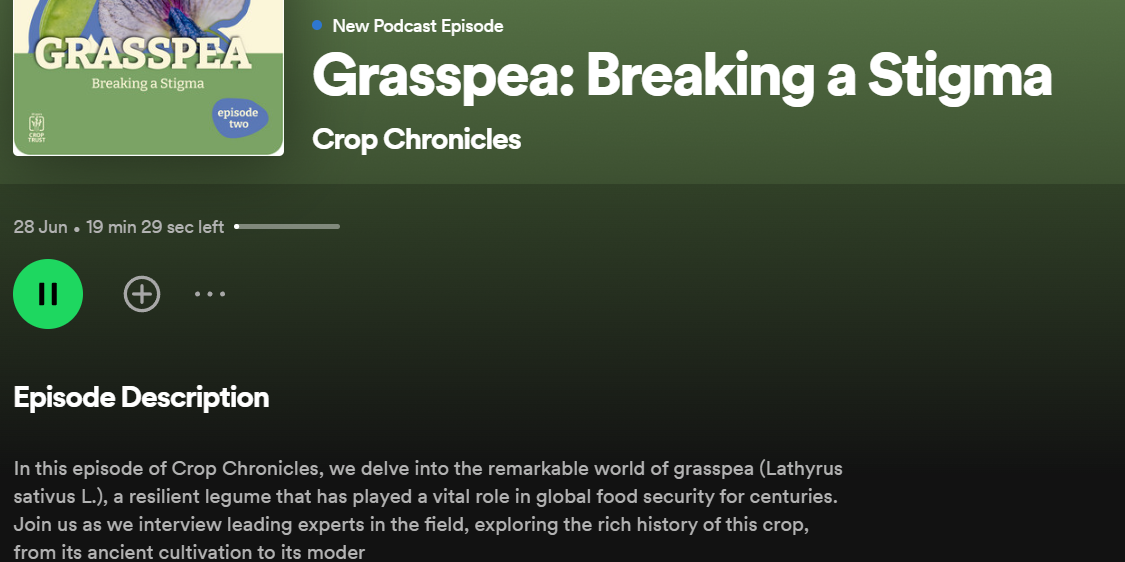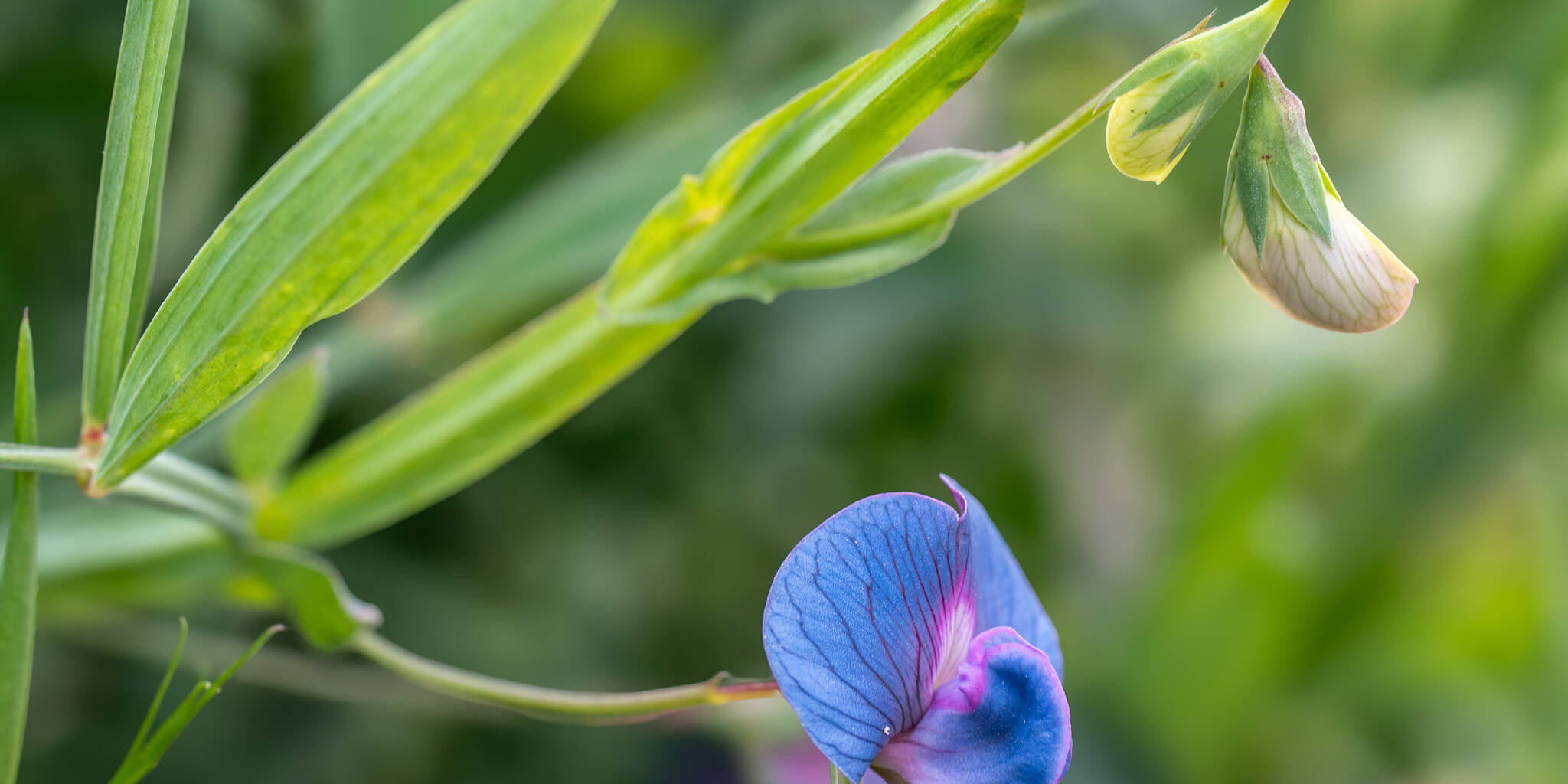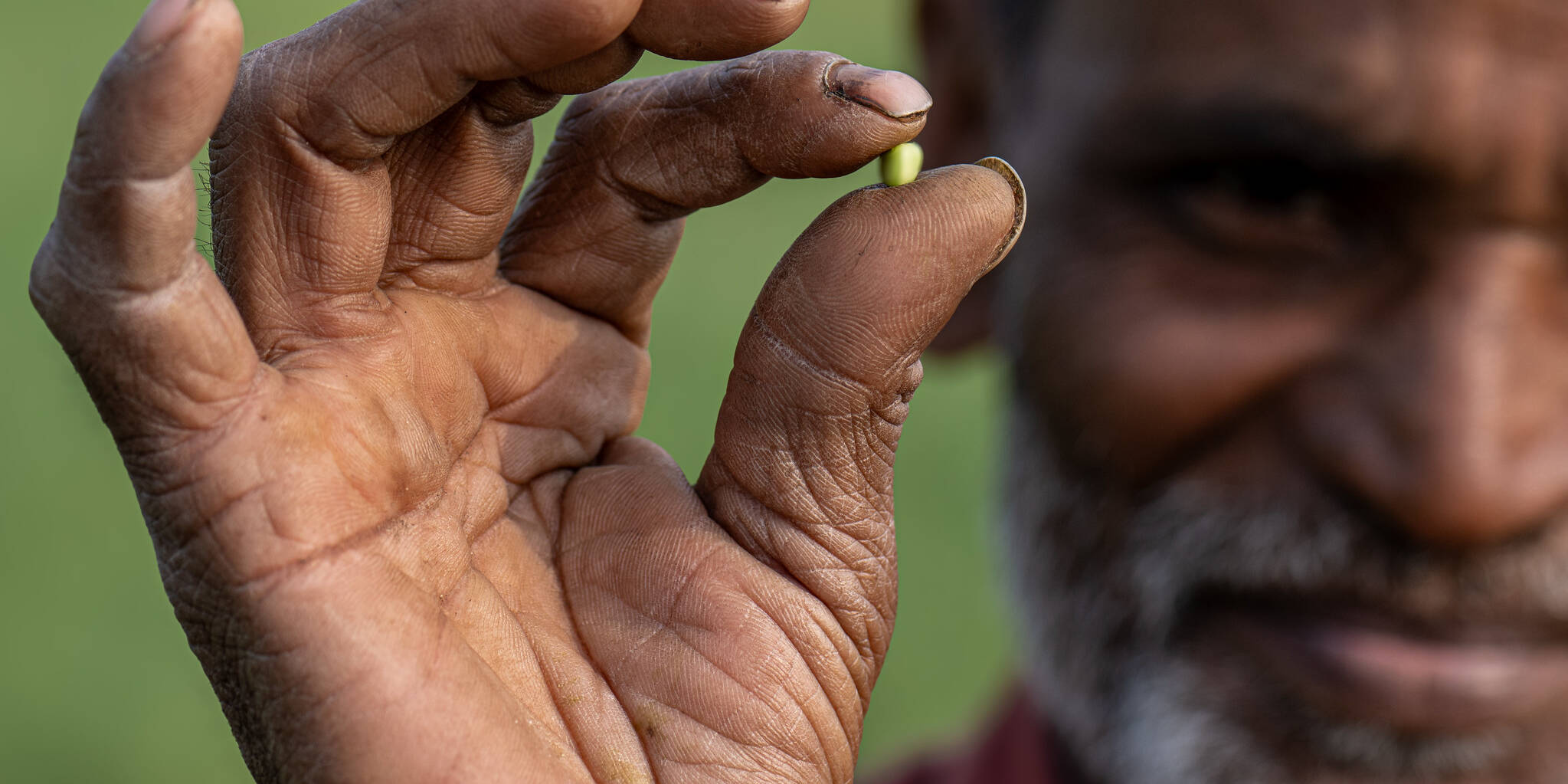By Dr Surendra Barpete, National Associate Scientist, ICARDA, India X: @surendrabarpete
Legumes, a vital protein source for vegetarians, offer fiber, complex carbohydrates, and essential micronutrients supporting a healthy diet. Despite their benefits, some climate-resilient legumes like grasspea (Lathyrus sativus L.), are underutilized. Grasspea, known as an “insurance crop,” thrives in harsh conditions, providing low-input farming and income opportunities for farmers in drought-prone regions. However, the cultivation of high-toxin (ODAP) grasspea cultivars poses health risks.
In response, ICARDA has prioritised the development of low toxin high yielding grasspea varieties for wide adaptation. These varieties will help mitigate the health risk associated with high-toxin cultivars. ICARDA, under the Crop Trust’s BOLD-AUGER project, has distributed seeds of low ODAP pre-breeding lines in India, Bangladesh and Nepal for their evaluation in local conditions in farmers’ fields.
Significance of grasspea in South Asia and Sub-Saharan Africa is well recognized in rainfed areas especially of rice fallows where successful cultivation of other crops is a challenge under climate change scenario and short season window between the two main crops. With the distribution of quality seeds of improved varieties and training on good agronomic practices can boost not only its productivity but also area expansion under grasspea.



